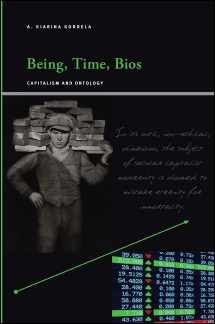
Being, Time, Bios: Capitalism and Ontology (SUNY series, Insinuations: Philosophy, Psychoanalysis, Literature.)
ISBN-13:
9781438445908
ISBN-10:
1438445903
Author:
A. Kiarina Kordela
Publication date:
2014
Publisher:
State University of New York Press
Format:
Paperback
236 pages
Category:
Psychoanalysis
,
Psychology & Counseling
,
Psychoanalysis
,
Psychology
FREE US shipping
Book details
ISBN-13:
9781438445908
ISBN-10:
1438445903
Author:
A. Kiarina Kordela
Publication date:
2014
Publisher:
State University of New York Press
Format:
Paperback
236 pages
Category:
Psychoanalysis
,
Psychology & Counseling
,
Psychoanalysis
,
Psychology
Summary
Being, Time, Bios: Capitalism and Ontology (SUNY series, Insinuations: Philosophy, Psychoanalysis, Literature.) (ISBN-13: 9781438445908 and ISBN-10: 1438445903), written by authors
A. Kiarina Kordela, was published by State University of New York Press in 2014.
With an overall rating of 3.7 stars, it's a notable title among other
Psychoanalysis
(Psychology & Counseling, Psychoanalysis, Psychology) books. You can easily purchase or rent Being, Time, Bios: Capitalism and Ontology (SUNY series, Insinuations: Philosophy, Psychoanalysis, Literature.) (Paperback) from BooksRun,
along with many other new and used
Psychoanalysis
books
and textbooks.
And, if you're looking to sell your copy, our current buyback offer is $0.3.
Description
A psychoanalytic theory of biopolitics.Although both share a focus on human life as it is inscribed by power, Foucauldian biopolitics and Lacanian psychoanalysis have remained isolated from and even opposed to one another. In Being, Time, Bios, A. Kiarina Kordela aims to overcome this divide, formulating a historical ontology that draws from Spinoza, Marx, Heidegger, and Sartre to theorize the changed character of “being” and “time” under secular capitalism. With insights from film theory, postcolonial studies, and race theory, Kordela’s wide-ranging analysis suggests a radically new understanding of contemporary capitalism―one in which uncertainty, sacrifice, immortality, and the gaze are central.


We would LOVE it if you could help us and other readers by reviewing the book
Book review

Congratulations! We have received your book review.
{user}
{createdAt}
by {truncated_author}


